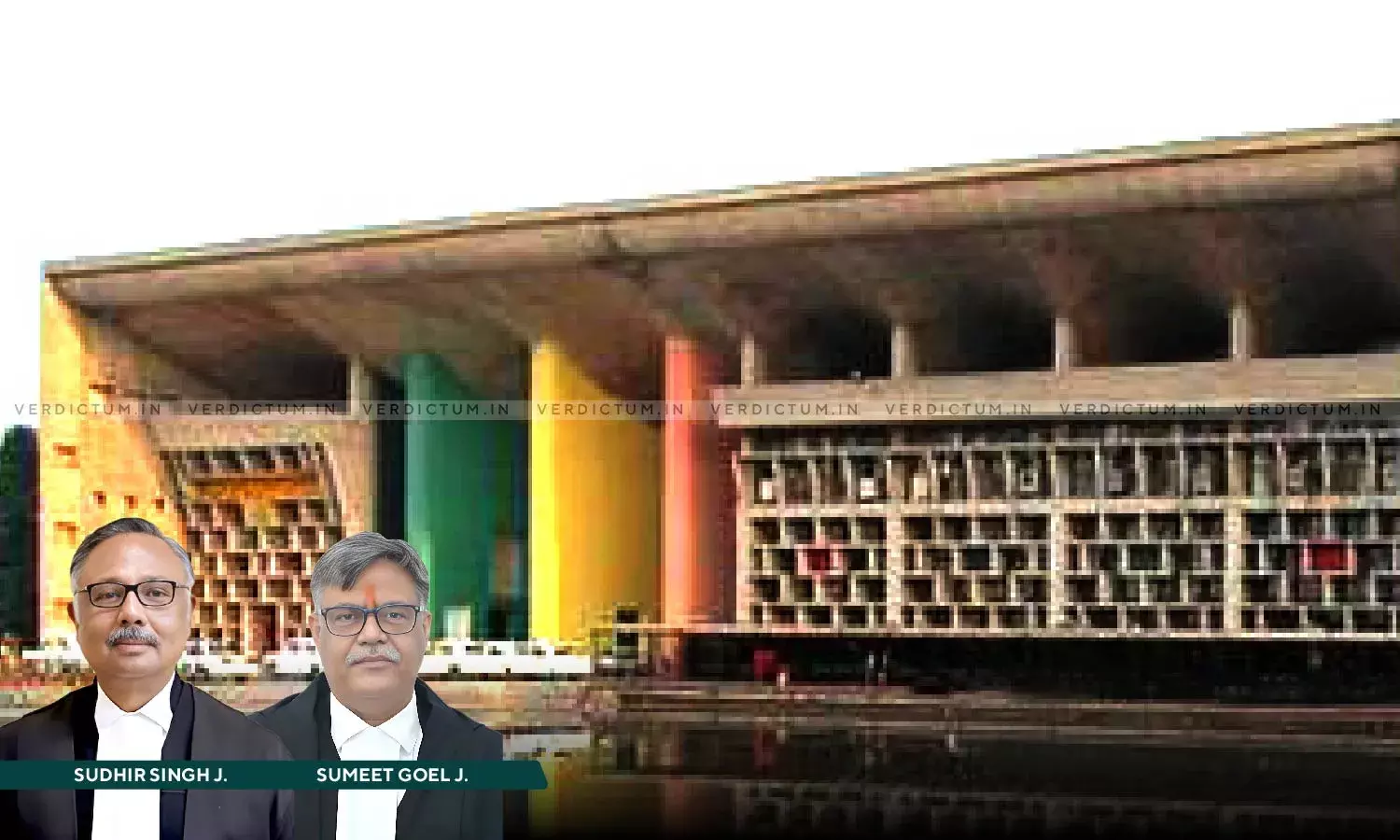Punjab and Haryana High Court Explains Special Status Of Family Courts

The Punjab and Haryana High Court provided insights into the special status accorded to Family Courts under the Family Courts Act, 1984 (Act).
The Court dismissed the Petition of a Husband against the dismissal of the divorce petition by the Family Court.
The Court noted that Section 10(3) of the Act allows the Family Court to devise its procedure independently, notwithstanding the general application of the Civil Procedure Code, 1908 (CPC).
The Court also noted that Section 20 of the Act holds overriding authority over any conflicting provisions in other laws currently in force.
“Section 10(3) of the 1984 Act postulates that nothing in Section 10(1) shall prevent the Family Court from laying down its own procedure so as to deal with the matter in issue before it i.e. for arrival at a settlement in respect of the lis of any suit/proceedings before it or to determine the truthfulness of the facts in dispute”, the Bench comprising Justice Sudhir Singh and Justice Sumeet Goel observed.
Advocate Gurinder Singh Dhillon appeared for the Appellant and Advocate Ashok Kumar Jindal appeared for the Respondent.
The Husband had initiated divorce proceedings based on allegations of cruelty and desertion, asserting marital difficulties. The Wife, in response, refuted the accusations in her written statement. Following the presentation of evidence by both parties, the Family Court dismissed the Husband's objections and application, leading to the subsequent appeal.
In the appeal, the Appellant-Husband contested the Family Court's decision to reject his objections regarding the Wife's affidavit of evidence.
The Court noted that Section 10(1) of the Family Courts Act, 1984 (Act), which designates Family Courts as Civil Courts, is subject to the provisions of the Civil Procedure Code, 1908 (CPC) unless specified otherwise in the Act. Notably, Section 10(3) grants the Family Court discretion to establish its procedure, particularly for dispute resolution or fact determination. The legislative intent, coupled with Section 20 of the Act, indicates that the CPC does not compulsorily apply to Family Court proceedings, as evident in the precise and unequivocal language of the legislation.
Applying Heydon's Rule of Interpretation, the Court noted, “Act was enacted to adopt a radically different approach from that adopted in ordinary civil proceedings & simplify the rules of evidence/procedure so that a Family Court could more effectively deal with a matrimonial dispute”. Section 13 of the Act, denying an automatic entitlement to a legal practitioner, suggested a departure from CPC technicalities. Section 14 empowered the Family Court to consider any relevant material for effective adjudication, emphasizing a non-technical approach to the Evidence Act.
The Court emphasized that the Act, enacted in 1984 exclusively for matrimonial disputes, stands as a special law distinct from the general procedural law, CPC, enacted in 1908. Its subsequent enactment in Haryana, Punjab, and Union Territory, Chandigarh reinforces its specificity. “Hence, it would be pragmatic approach; as per principle of generalia specialibus non derogant as well, to come to an inevitable conclusion that Family Courts are not fully bound by provision of CPC”, the Bench reiterated.
Furthermore, the Court noted the significance of Order VIII Rule 1-A, inserted into the CPC in 1999, which mandates defendants to produce supporting documents with a written statement. The Family Court, guided by a liberal approach, holds particular relevance within the context of the 1984 Act's statutory framework.
The Court established key legal principles: “(I) Sub Section (3) to Section 10 read with Section 20 of the Family Court Act, contains non-obstante clause and gives supremacy to the provisions of the said Act, vis-à-vis the provisions of other enactments/Acts.
(II) CPC, 1908 is not applicable with its full rigours to proceedings under the Family Courts Act, 1984. In other words; a Family Court is entitled to lay down its own procedure, as warranted by facts/circumstances of a given case and it is not bound by the procedural rigours of CPC, 1908. However, while devising its such own procedure, the Family Court ought to ensure that such procedure is in consonance with the basic cannons of the jurisprudence such as principles of natural justice, good conscience and equity.
(III) A Family Court is well within its powers to take into evidence any material, which in the judicial discretion of such Family Court, may be essential for effectively adjudicating a lis before it whether or not such material fulfills the requirements of Indian Evidence Act, 1872. However, while exercising such discretion, the Family Court ought to bear in mind that receiving of such material by way of evidence does not violate the basic principles of our legal system.
(IV) Order VIII, Rule 1-A CPC of 1908 is not a mandatory provision and rather it is a directive in nature only especially with respect to the proceedings under Family Court Act, 1984. A Family Court will be well within its judicial discretion to take into evidence any material in terms of sub-rule (3) of Order VIII, Rule 1-A of CPC, 1908 without any formal application for grant of leave by the defendant. However, while exercising such discretion the Family Court is required to pass a reasoned order”.
In the specific case, the Bench observed that the Husband contested the Wife's submission of additional documents with her affidavit, not included in her written statement. The Family Court rejected the Husband's objections, asserting that he received copies of all documents and retained the right to cross-examine the Wife.
Therefore, the Court found no justification for interference in the impugned order, emphasizing the Husband's ability to present rebuttal evidence or request additional evidence if deemed necessary.
Accordingly, the Court dismissed the Petition and upheld the impugned order.
Cause Title: X v Y (2023:PHHC:165262-DB)

